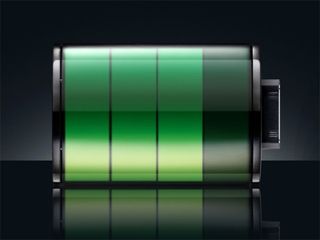NEC Develops Batteries With 30% Greater Charge Densities
NEC says it may have found a way to provide much higher density in lithium-ion batteries, which could, for example, substantially increase the range of electric cars.

According to the company, it has developed a prototype of a manganese lithium-ion battery that use cathodes to support higher voltages as well as a fluorinated electrolyte solution that is much more resistant to oxidation than the common carbonate-based solvents. It also acts as a stabilizer for those higher voltage operations.
NEC said that it was able to increase the operating voltage from 3.8 V to 4.5 V and achieved a 30 percent greater charge capacity at any given weight of the battery as a result. The prototype charge density was 200 Wh/kg, which is up from 150 Wh/kg in current batteries.
There is still some research required before such batteries could see commercial production. NEC noted that the technology only maintains about 80 percent of original capacity with 500 full charge and discharge cycles in conditions below room temperature (68 degrees F), while maintaining roughly 60% when above room temperature (113 degrees F).
Contact Us for News Tips, Corrections and Feedback
Stay on the Cutting Edge
Join the experts who read Tom's Hardware for the inside track on enthusiast PC tech news — and have for over 25 years. We'll send breaking news and in-depth reviews of CPUs, GPUs, AI, maker hardware and more straight to your inbox.
-
archange ReplyAccording to the company, it has developed a prototype of a manganese lithium-ion battery that use cathodes to support higher voltages as well as a fluorinated electrolyte solution that is much more resistant to oxidation than the common carbonate-based solvents.
Not to nitpick, I'm cheering for more battery life as much as the next guy, but isn't that more toxic as well? -
srhelicity Replywhile maintaining roughly 60% when above room temperature (113 degrees F).
If 113 F is room temperature, I don't want to be in that room! -
danwat1234 retains 60% capacity? More research needed indeed. Reminds me of Envia and how they are making lithium batteries with more energy density, but of course the increased capacity doesn't hold after it's used x many cycles.Reply
Nanowire lithium ion FTW? -
danwat1234 srhelicityIf 113 F is room temperature, I don't want to be in that room!Reply
Err, the battery would easily be up there if it's used with spirited driving in an electric/hybrid car, or in your pocket inside a smart phone, or in a laptop, pad..
-
memadmax This thing is either a dud or something is wrong with it.Reply
"NEC noted that the technology only maintains about 80 percent of original capacity with 500 full charge and discharge cycles in conditions below room temperature (68 degrees F), while maintaining roughly 60% when above room temperature (113 degrees F)"
At this point, it isn't even ready to be a flashlight battery.... -
joytech22 What if my room temperature is 0.1C?Reply
Joking, but still.. Y U NO IMPLEMENT INTO PHONE BATTERIES. -
jeffunit "According to the company, it has developed a prototype of a manganese lithium-ion battery that use cathodes..."Reply
How many cathodes does it have?
All batteries have a cathode and an anode.
Saying a battery uses cathodes is like saying that your power plug has neutrals and hots connectors. -
coolcash1777 jeffunit"According to the company, it has developed a prototype of a manganese lithium-ion battery that use cathodes..."How many cathodes does it have?All batteries have a cathode and an anode.Saying a battery uses cathodes is like saying that your power plug has neutrals and hots connectors.Reply
Batteries have many "cells" each of which has a anode and cathode (with electrolyte in the middle). The cells are stacked to produce the voltage and amperage required for the "battery."
Most Popular

